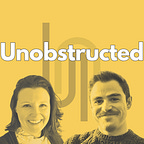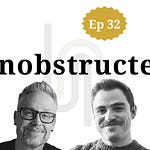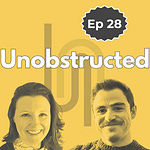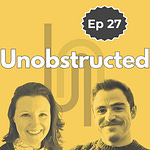Conflict avoidance is being disguised as resolution.
I’ve been seeing the phrase “Let Them” popping up more frequently.
Let them talk.
Let them act like that.
Let them misunderstand you.
A while back, Mel Robbins released a podcast episode that focused on this core message as a reminder she used for letting go of the urge to control or convince others. She credited her therapist with the pearl of wisdom. Then she wrote a book about it, The Let Them Theory. And a bunch of publicity followed. Social media posts, articles, morning shows, podcasts—
I wanted to love it.
The message offers a fantastic reframe. But somewhere between that initial podcast and the book release, something got jumbled. And now, it kinda, maybe, sorta, seems to be… misleading people?
Don’t get me wrong, all of this can be useful…but it can also be self-destructive without part two. Which, never quite makes it into the soundbites.
The Unobstructed Podcast: Episode 19
In this episode, Rachael and I deep dive into the process of naming what you’re actually experiencing, so you can respond rather than react.
Friction is the best teacher we’ll ever have, but the hardest to accept. It acts like a mirror. And our level of growth depends on our willingness to look at our own reflection.
The Let Them Theory certainly helps to reframe how you can approach the unknown—specifically with empowered decision-making. Where it falls short is in accountability. This is the “Let Me” part of the theory, where you can decide what to do after you’ve let them be.
Rachael and I also talk about:
Power, authority, and the ability to reprimand.
The problem with meeting confusion with aggression.
Reframed thought processes that lead to changed actions.
Things feel a lot lighter when you stop trying to control outcomes and start focusing on responding to them. That’s what we make sense of in this episode.
As always, you can listen above or on Spotify, Apple Podcasts, and Amazon Music.
onward.
P.S. If you’re new to my work, I think you’d also enjoy my blog. That’s where you’ll find everything I publish, including my daily email series.













